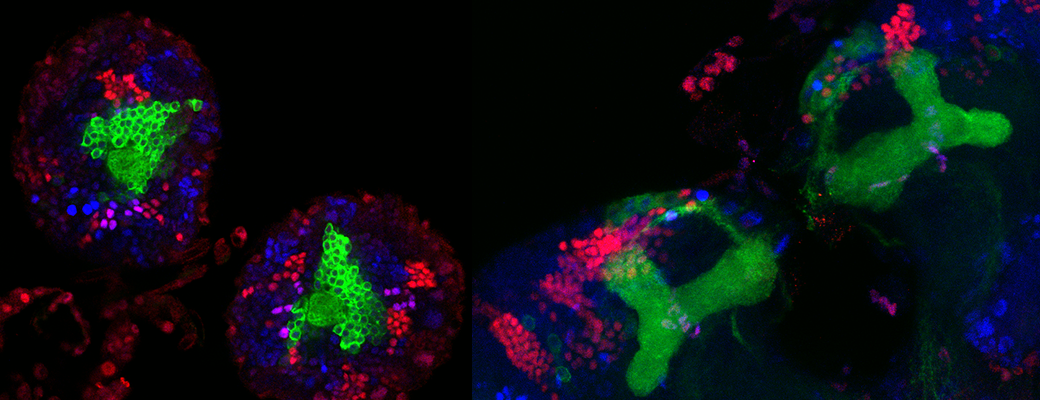Researchers Inch Closer to Epilepsy Treatment
Researchers at the Desplan Lab have new understanding of glial cells in the brain and could be closer to developing a treatment for epilepsy.
September 11, 2017
Researchers at NYU’s Desplan Lab have decoded the role that seizure-driving glial cells play in brain development, marking a crucial first step in developing future epilepsy treatments.
Previously, biologists thought glial cells were simply servants to neurons, providing them support and nutrients. This study found that glial cells act as commanders in a developing brain: not only do glial cells direct neurons to develop, but they harmonize growth in the left and right regions of the brain.
Vilaiwan Fernandes, a postdoctoral fellow in the Desplan Lab who conducted the research with Zhenqing Chen, Anthony Rossi, Jaqueline Zipfel and Claude Desplan, said that understanding glial cells is crucial for understanding what causes seizures.
“In the future, this does have an impact on medicine. There are a lot of brain pathologies that involve glial dysfunction, including epilepsy,” Fernandes said. “One of the hypotheses emerging in the field is that glia malfunction because a developmental program is becoming reactivated.”
Fernandes said that although glial cells make up over half of all brain cells, their role in brain development was previously a mystery.
“Oftentimes glia have been excluded or ignored when people consider how the brain develops,” she said. “Our study shows a very clear, active role for glia in how these nerve cells develop, which has a major impact on people’s perspectives on brain development.”
The researchers used fruit flies in their experiments because their cells have been extensively studied and mapped. By manipulating their brain cells and shutting off the expression of certain genes, researchers could directly manage the development of their embryos.
“Working in vertebrate models like flies and worms allows you to really get to the meat of the subject and then point the work in future directions,” Fernandes said. “They are cheap and easy to keep in the lab, and it is not as ethically awkward as it would be with other vertebrate model organisms.”
In the future, Fernandes hopes to start her own lab in the U.K. to research the role glial cells play in vision.
A version of this article appeared in the Monday, Sept. 11 print edition. Email Flavia Sinha at [email protected].



























































































































































